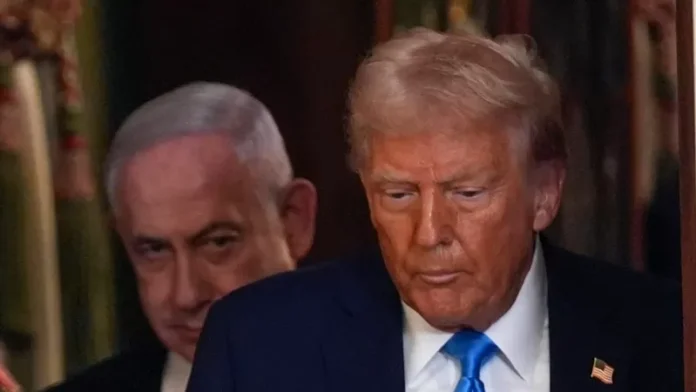U.S. President Donald Trump recently made a bold statement, declaring that the Gaza Strip would be turned over to the United States by Israel at the conclusion of fighting. This announcement has sparked controversy and raised concerns about the impact it will have on the ongoing U.S.-China competition in the Middle East.
The Gaza Strip, a small strip of land located on the eastern coast of the Mediterranean Sea, has been a hotbed of conflict for decades. It is currently under the control of Hamas, a Palestinian militant group, and has been subject to a blockade by Israel since 2007. The living conditions in Gaza are dire, with high unemployment rates and limited access to basic necessities such as food, water, and electricity.
In light of this, President Trump’s proposal to take over the Gaza Strip has been met with mixed reactions. On one hand, some see it as a potential solution to the ongoing conflict and a way to improve the lives of the people living in Gaza. On the other hand, there are concerns about the implications of such a move and the potential consequences it may have on the U.S.-China competition in the region.
China, a major player in the Middle East, has firmly opposed the forced displacement of Palestinians to neighboring countries. In response to Trump’s statement, Beijing has made it clear that it stands against any actions that would further exacerbate the already volatile situation in the region. This stance is in line with China’s long-standing support for the Palestinian cause and its commitment to a two-state solution for the Israeli-Palestinian conflict.
The U.S.-China competition in the Middle East has been intensifying in recent years, with both countries vying for influence and control in the region. The U.S. has traditionally been the dominant power in the Middle East, but China’s growing economic and political clout has challenged this position. The two countries have been competing for access to energy resources, strategic partnerships, and influence over regional conflicts.
If the U.S. were to take over the Gaza Strip, it would undoubtedly have a significant impact on the U.S.-China competition in the Middle East. It would give the U.S. a stronger foothold in the region and potentially shift the balance of power in its favor. This could also have implications for China’s Belt and Road Initiative, a massive infrastructure project that aims to connect Asia, Africa, and Europe through a network of trade and investment.
Moreover, the forced displacement of Palestinians to neighboring countries, as proposed by Trump, would not only be a violation of international law but also a humanitarian crisis. It would further destabilize the region and could potentially lead to an increase in violence and extremism. This would not only have a negative impact on the people of Gaza but also on the neighboring countries and the wider Middle East.
In addition, the U.S. takeover of the Gaza Strip could strain the already tense relationship between the U.S. and China. The two countries have been engaged in a trade war and have clashed over various issues, including human rights and territorial disputes. A move that is seen as disregarding China’s stance on the Palestinian issue could further escalate tensions between the two nations.
In conclusion, while President Trump’s proposal to take over the Gaza Strip may seem like a solution to the ongoing conflict, it has the potential to have far-reaching consequences. It could impact the U.S.-China competition in the Middle East and strain the relationship between the two nations. It is crucial for all parties involved to carefully consider the implications of such a move and work towards a peaceful resolution to the Israeli-Palestinian conflict. Only through cooperation and dialogue can a lasting solution be achieved for the people of Gaza and the wider region.

